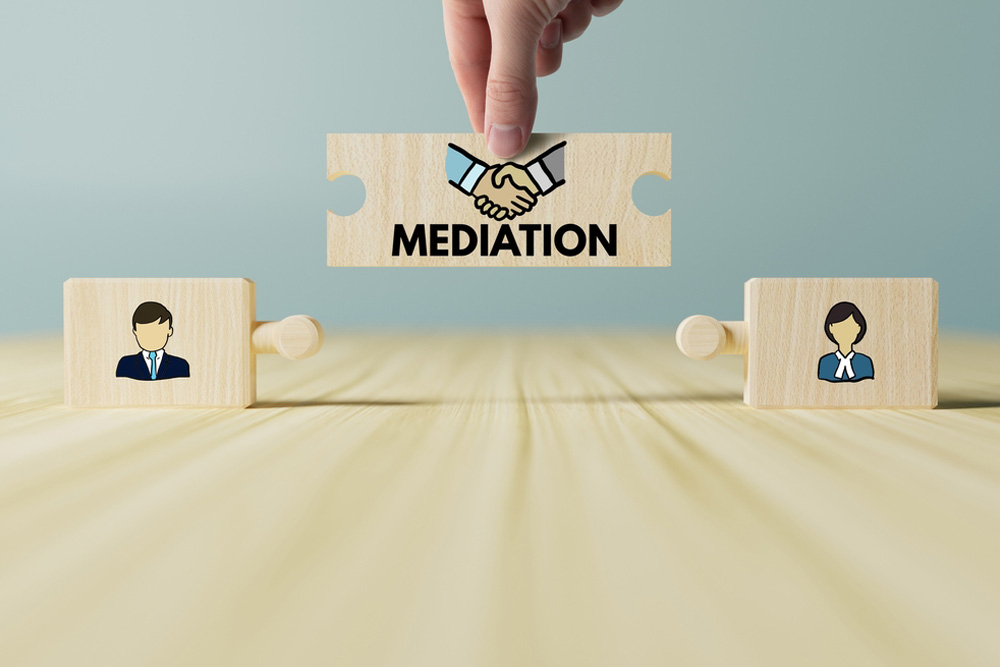




Mediation Lawyer Bellevue
As families evolve in form and structure, so too must the legal systems that support them. In today’s world, where co-parenting, blended families, LGBTQ+ partnerships, and non-traditional relationships are more common than ever, families often seek legal approaches that reflect cooperation, respect, and flexibility. Mediation has emerged as a preferred solution—especially for those who want to resolve disputes outside the courtroom with compassion and clarity. At Enright Family Law in Bellevue, we understand the needs of modern families. Our mediation services are designed to help individuals resolve their family law matters in a way that respects their values and preserves important relationships, especially when children are involved.What Is Mediation?
Mediation is a voluntary, confidential process where a neutral third party—known as a mediator—facilitates discussions between individuals who need to resolve legal issues such as divorce, custody, parenting plans, or financial matters. Unlike a judge, the mediator does not impose decisions. Instead, the mediator helps both parties reach agreements they can live with—agreements that are often more creative and durable than court-imposed solutions. Mediation is often used in family law because it helps reduce conflict and promotes cooperation, which is especially valuable when ongoing co-parenting is necessary.Why Modern Families Are Turning to Mediation
The traditional courtroom model doesn’t always serve the diverse needs of modern families. Mediation offers a more adaptable, respectful, and forward-thinking alternative. For many, it’s a path to resolution that avoids the emotional and financial toll of litigation. Key benefits of mediation include:- Privacy: Unlike court proceedings, mediation sessions are private and the outcomes are confidential.
- Cost Efficiency: Mediation is typically less expensive than going to court, both in terms of legal fees and time.
- Faster Resolution: Mediation often resolves disputes more quickly, without the delays associated with litigation.
- Preserved Relationships: Mediation supports communication and mutual understanding, which helps preserve relationships and minimize conflict.
- Customized Agreements: Solutions can be tailored to fit the unique circumstances of the family, something that is often lost in rigid court orders.
Common Family Law Issues Handled Through Mediation
Mediation is highly effective for a range of family law matters, including:Divorce and Legal Separation
Through mediation, couples can address the terms of their separation in a non-confrontational setting. This includes:- Division of property and debts
- Spousal support (alimony)
- Allocation of retirement accounts and other complex financial assets
Parenting Plans and Custody
Mediation empowers parents to craft parenting plans that prioritize their children’s needs. Issues resolved often include:- Custody and residential schedules
- Decision-making responsibilities
- Holiday and vacation arrangements
Child Support
Parents can discuss financial contributions in a more thoughtful and collaborative way than a court might allow. Mediation can help address special expenses like childcare, education, healthcare, and extracurricular activities.Modifications to Existing Agreements
As families change—due to relocation, new relationships, or shifts in income—existing court orders may need to be revised. Mediation offers a way to make these changes efficiently and respectfully.Prenuptial and Postnuptial Agreements
Couples looking to protect their assets and define expectations before or during marriage can use mediation to create fair and respectful agreements that reflect shared goals.How Mediation Works
Mediation typically follows a simple, structured process:- Initial Consultation: The mediator meets with both parties to understand their goals, assess suitability, and explain the process.
- Joint Sessions: The mediator facilitates structured discussions to help the parties identify issues and reach agreements.
- Drafting Agreements: Once consensus is reached, the mediator prepares a written agreement, which can then be reviewed by each party’s attorney.
- Finalization: If needed, the agreement is filed with the court and made legally binding.


